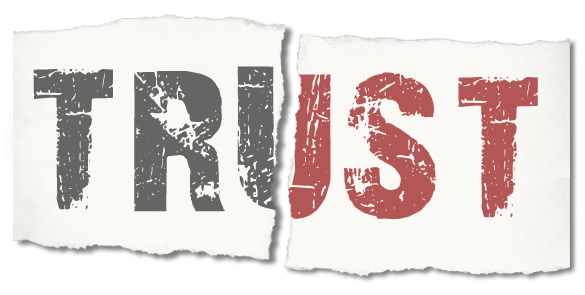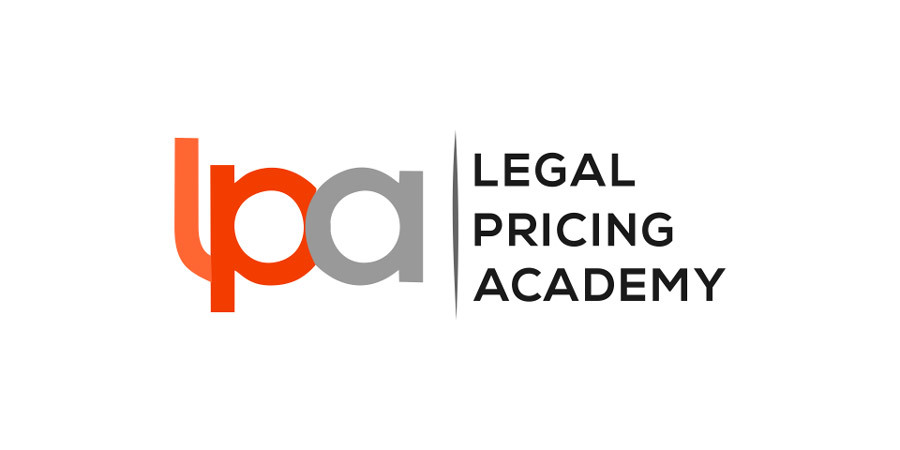In part one of this three-part blog series, we suggested that one of the single greatest impediments to the evolution of law firm/client relationships, particularly when it comes to pricing, is the mutual lack of trust.
I concluded the first post with, “… law firms and clients need to do a stock take of what they are doing wrong. In the next two blogs we will share our observations on what firms and their clients are currently doing to damage the relationship and destroy trust. Neither will be spared. There is plenty of criticism to go around!”

Let’s take a look at some of the things law firms are guilty of that damages trust.
Inadequate scoping: Few, if any, would challenge the importance or the need for comprehensive scoping as an essential precursor to a pricing proposal and yet it is often rushed, and inadequate thought is applied to it.
Whilst we might regard it as little more than regulatory compliance and form filling faff, it is, to state the obvious, the contractual basis of the engagement and just as importantly, a key opportunity to manage the client's expectations.
Whether we like it or not, we have to spend time on pricing. The question is whether you spend time trying to get it right at the beginning of the matter or you spend it at the end dealing with the difficult conversations (both internal and external).
Pricing procrastination: The failure to reengage with clients in a timely manner when it becomes apparent that the final cost of the job is likely to exceed client expectations, costs the legal profession more in post-billing mea culpa write-offs than any other single reason. To present a client after the event and without warning with a bill materially in excess of what they were expecting is at best tin-eared and at worst, arrogant. It isn’t rocket science. Just ask yourself what your expectations would be if you were a client.
Dishonest underquoting: There are of course shades of grey here and firms will sometimes strategically, tactically and with measured aforethought, price work in order to secure a particular short-term opportunity for what is perceived to be longer term gain.
That is fine, provided the firm then sticks to its pricing. However, we have lost count of the number of times that we have seen flagrantly dishonest pricing in circumstances where, objectively, it is absolutely impossible for that particular piece of work to be concluded to anything like a reasonable standard for the price proposed.
Hindsight has shown unequivocally that the price was put forward in the certain knowledge that the lawyers would then talk the client up on the basis that ‘things changed’. I was even told by a managing partner that this is part of the bid team’s ‘official’ strategy. Unbelievable!
Over-engineering the job: This dynamic is best illustrated by a comment made to me by a FTSE 100 GC, "I am sick and tired of asking our external law firms for a garden shed and instead getting an office tower and a bill to match”.
You can just imagine a GC sitting there, fuming to themselves…” Which part of… ‘I need 10 bullet points for the board meeting on Friday’ did you not understand? I do not need, I do not want, I didn't ask for and I'm certainly not going to pay for a 30-page opinion!!”
Lack of price transparency: We may believe that our pricing is perfectly transparent, but it begs the question, why if that is the case, does the need for greater price transparency usually appear in the top two or three items on GC's wish list when they are surveyed? Unfortunately, from a client perspective law firms pricing still remains exceedingly opaque. What does price transparency look like? Ask your clients.
Non-compliance with outside counsel guidelines: There is no denying that these guidelines can be irksome and the administration of them can be a massive headache, particularly when no two sets of guidelines are the same. However, they need to be complied with and failure to do so only create distrust and encourages clients to adopt a forensic approach to both your invoices and timesheets, something that isn't helpful or constructive for either of you.
Misaligned incentives: We were recently asked to provide one of our large law firm clients with assistance on a panel renewal for a FTSE 100 client. It was the first time we had seen an explicit articulation in the RFP of the client's belief that misalignment of the firms’ internal meritocracy structures, were at best hindering the opportunity for cost reduction and at worst, overtly incentivising fee earners at the client's expense.
The RFP included the following statement…
“…you should consider how you incentivise your own employees and whether this runs counter-intuitive to what you are proposing in this model. For example, if [our] objective is to reduce overall … cost… and the law firm incentivises its employees by giving them billed hours targets, then the two are mismatched from the start. You may need to consider introducing different performance objectives for fee earners who work on [our matters].”
Subtext – and we want to see evidence of those recalibrated internal incentives! If not, you won’t survive the first cut.
Block time recording: Best practice is obviously to time record contemporaneously with the conduct of the work. Time recording at the end of the day may be tolerable if you are only working on a single matter. To suggest to a client that you are capable of recalling at the end of the week or heaven forbid, at the end of the month, precisely what you did and when on multiple files inevitably attracts precisely the sort of scepticism and distrust to which you are subjected. It is hardly surprising.
This list is by no means exhaustive, but it's not the number of ways in which we can damage trust that is important, but rather the incidence of them. Keep in mind the old mantra, ‘It takes years to build up trust in any relationship and only seconds to destroy it, and forever to repair it.’
We can do better – and we must.
Richard Burcher, Managing Director

